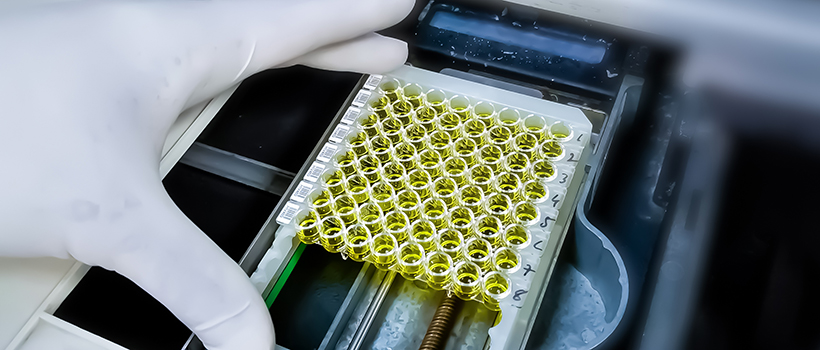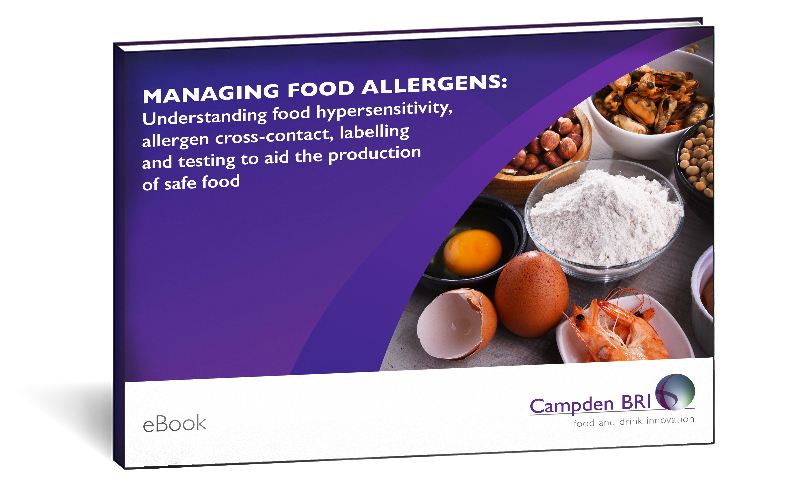
Selecting the right method or test kit for your food allergen testing
12 July 2023 | Marie-Anne Clarke, Laboratory Supervisor and Helen Arrowsmith, Regulatory Affairs Manager and Allergen Specialist
Food business operators must employ food allergen management systems to mitigate or remove potential sources of contamination and minimise allergen cross-contact risks. The control measures employed must be validated, verified, monitored and documented.
Download our FREE Managing Food Allergens eBook today! Secure food safety, control and confidence through effective allergen management

Within food allergen management, food allergen testing serves several purposes, including:
- Demonstrating that controls and procedures in place to manage food allergens are working (such as validation and verification of cleaning to remove food allergens)
- Providing evidence for compliance with claims
- Assisting in investigations such as those into potential allergen cross-contact
- Determining the food allergen status of raw ingredients
When selecting a food allergen test, you need to understand what you are testing for, why that specific test is being done, and on what type of sample
Worked example – selecting the right method for detecting milk cross-contact
Several tests are available for detecting constituents of milk. In the example table below, three different options are shown for comparison – an ELISA method for the detection of casein, an ELISA method for the detection of beta-lactoglobulin (BLG), and an ion chromatography method for the detection of lactose.
| Option 1 | Option 2 | Option 3 | |
|---|---|---|---|
| Test method | ELISA | ELISA | Ion chromatography |
| Test specificity | Casein | Beta-lactoglobulin | Lactose |
| Test measuring range | 2-25 mg/kg casein | 2.5-40 mg/kg BLG | 20-100 mg/kg lactose |
| Measuring range in terms of skimmed milk powder (SMP) | 10-125 mg/kg SMP | 111-1778 mg/kg SMP | 40-200 mg/kg SMP |
To select the most appropriate testing option, the nature of the milk contaminant of interest should be considered. For example, whey powder has a high BLG content, making the ELISA test for BLG the most suitable choice if whey powder is the contaminant to be analysed for.
Skimmed milk powder (SMP), however, contains 20% casein, 2.25% BLG, and 50% lactose. Based on these proportions, it might seem like testing for lactose would be the most appropriate choice if SMP is the contaminant to be analysed for; however...
The sensitivity of the test needs factoring in, too. While SMP contains more lactose than casein, taking the sensitivity of the testing methods into account reveals that casein is actually the most appropriate marker for SMP in this example. Therefore, an ELISA test for casein would be the best choice in this case if SMP is the contaminant to be analysed for.

Your trusted testing partner
End-product food allergen testing (including for other substances that cause food hypersensitivity) can to contribute to food safety through validation of your control processes, where feasible. While food allergen testing is an important part of any allergen management system, it is important to understand its limitations, select the right test for the application, and interpret results carefully (we can help with all of this).
If you need any information or support, get in touch.
Including food allergen testing, we provide a range of services to support your food allergen management needs, including; food allergen training courses, testing, and practical support with cleaning validation, hygienic design, food safety management systems, labelling and legislation.

About Marie-Anne Clarke
Marie-Anne is the lead contact for the Allergen Testing and Biochemistry Molecular Biology Teams. She uses her knowledge of biochemistry and molecular techniques, as well as experience working with food allergens and DNA techniques, to provide advice and consultancy on food allergen detection and species authenticity, as well as GMO detection.
Prior to joining Campden BRI, Marie-Anne obtained a BSc degree in Anatomical Science with her final year project on sequencing and characterising a novel gene in bovine cartilage. Marie-Anne joined Campden BRI in 2003, after two years in retail, initially as a molecular biology technician working on fish species identification, as well as conducting assays for detection of food allergens using ELISAs.
In 2014 Marie-Anne was appointed Team Leader of the Food Allergens Team, providing technical contract services in food allergen detection, interpretation of testing results and consultancy on testing for food allergens and cleaning validation. In 2020, Marie-Anne became manager of the Biochemistry Molecular Biology Team, who offer contract authenticity analysis services for fish and meat speciation and detection of GMOs.
Need analysis and testing?
For more on food allergen analysis, including rapid turnaround for urgent testing, visit our service pages.
Managing Food Allergens eBook
Download our FREE Managing Food Allergens eBook today! Secure food safety, control and confidence through effective allergen management.







